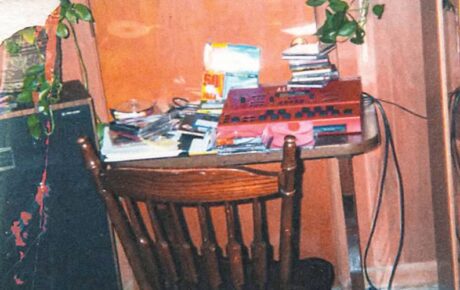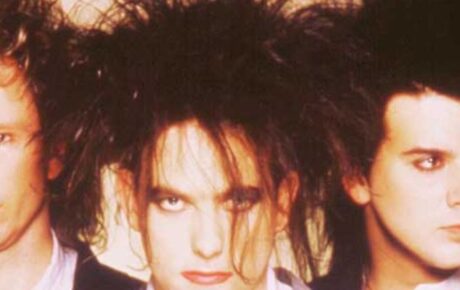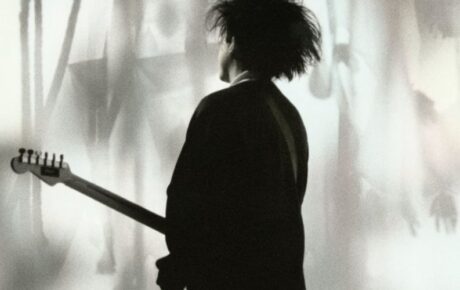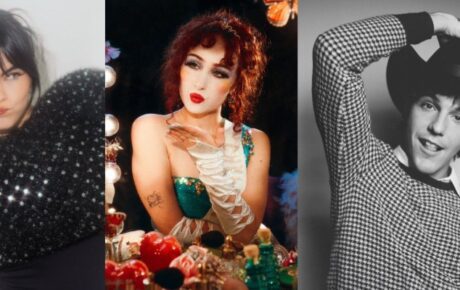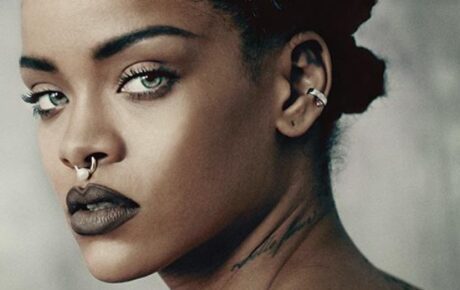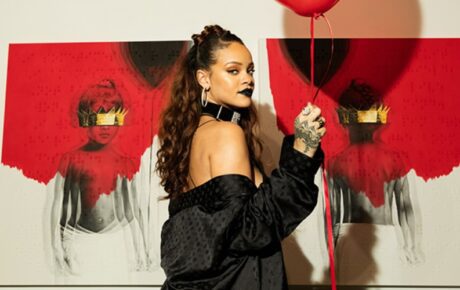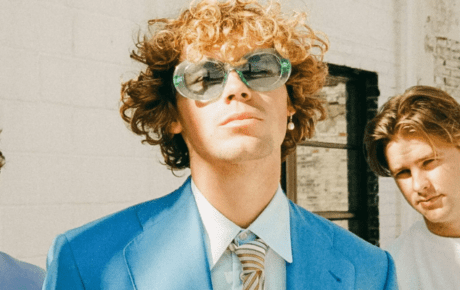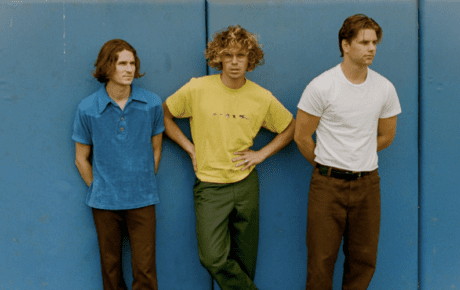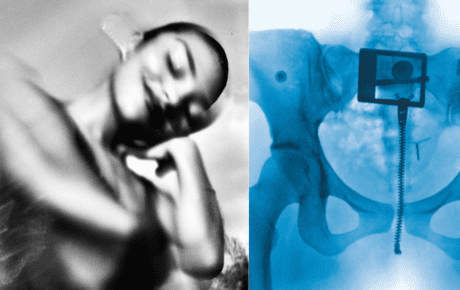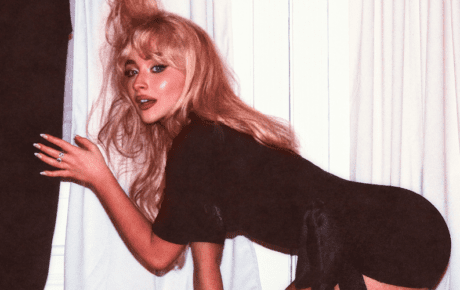When a mysterious figure named Lana Del Rey went viral in 2011 for her bedroom music clip ‘Video Games’, it was impossible to predict what a legacy she’d have. As one of the most compelling and influential artists of the 2010s, Lana Del Rey’s career has been an utter whirlwind, spanning seven studio albums and a flurry of different genres. But it’s still her first major release, ‘Born To Die’, that truly changed the game. To celebrate ten years of ‘Born To Die: The Paradise Edition’, it’s time to go back to where Lana’s quintessential brand of sad girl pop began.
The original Born To Die album dropped on January 27th, 2012, with twelve shiny new songs to delve into. The iconic album art depicts Lana staring sullenly into the camera, wearing a simple white blouse and red lipstick in front of a blue-sky that feels as menacing as it does beautiful. The Paradise repackage would later mimic this shot, but instead showcase Lana in a tight bathing suit, poolside at an old-timey hotel.
Born To Die’s unique blend of baroque orchestras, trip-hop beats and dark pop vocals couldn’t compare to any mainstream work before it. Cinematic and dramatic, each song dove into Lana’s search to attain the American dream, seeking love, sex, drugs and money to prove her worth. The title track opens with a huge orchestra, setting the scene of a classically American couple living for the now, amidst references to Lou Reed and the movie trope of kissing in the rain. ‘Off To The Races’ sees Lana lean into a disturbingly co-dependent persona. She swings between deep bassy vocals in the verses to childlike squeals in the choruses, using an almost raplike delivery. The album’s most conventionally pop song, ‘Diet Mountain Dew’, drops Jesus’s name alongside a list of American fashion trends and brands, over a compellingly hip-hop-influenced track.
‘Video Games’ dove deeper into Lana’s obsession with romance, using her one-of-a-kind voice and vivid imagery to craft one of the most beautiful love songs of our time. Songs like ‘National Anthem’ and ‘Million Dollar Man’ contrasted this positivity, stretching the fantasy into writing about unsettling relationships with older men, inspired by cautionary tales like Bonnie and Clyde and Lolita.
Elsewhere, Lana got more personal, addressing her alcoholism and mental health struggles on ‘Carmen’ and ‘This Is What Makes Us Girls’. Through every song, she blurs the lines between the real and fictional Lana Del Rey, transcending her own life and transforming into a satire of what America expects a woman to be, yet maintaining an almost uncomfortable level of sincerity beneath it all. Moreover, there’s an inimitable balance between her immortal Hollywood voice, and her current-day slang and production, that no other artist had yet tapped into.
Following Born to Die’s success, Lana released the Paradise EP on November 12th as a standalone release, as well as repackaging it for Born To Die: The Paradise Edition. The initial album’s success makes a clear impact on Lana’s sense of self across Paradise, as she gets more referential and tongue-in-cheek. She describes herself as the daughter of Elvis Presley and Marilyn Monroe, living it up in “the land of gods and monsters”, Los Angeles. The infamous titular lyric of ‘Cola’ sees Lana get campy and comedic, whilst providing her most obviously parodical character as a woman who “wears her diamonds on Skid Row.” She also pays tribute to her musical influences with an ethereal cover of 1950s song ‘Blue Velvet’, showcasing her deep, timeless vocals.
But the shining star of Paradise is ‘Ride’, a soulful folk-pop ballad most memorable for its iconic ten-minute-long music video. Lana delivers a dramatic monologue about living freely as a traveller. Dreamy shots of her swinging over the desert in cowboy attire, hitchhiking to escape the city streets and riding a motorcycle along the open road make for some of the most unforgettable visuals in her career. The clip closes with a line fans would quote, both ironically and yet with the utmost sincerity, for all eternity: “I am f**king crazy, but I am free.”
It’s impossible to understate the influence of the Born to Die and Paradise era upon pop in the following years. These conflicted, experimental songs interrupted pop music at the start of the 2010s. Amongst the endless stream of nightclub anthems, Lana answered a call for something real and emotional, speaking to those who didn’t feel happy in the ways the radio seemed to demand of them. The commercial and critical success of tracks like ‘Blue Jeans’ and ‘Summertime Sadness’ opened the floodgates for darker alt-pop. Many of the most well-recognised moody pop stars of today, including Billie Eilish, Lorde, Halsey and The Weeknd, cite Lana as a core influence upon their inventive sound and haunting lyrics.
And it would be impossible to talk about Born To Die and Paradise without acknowledging their influence on internet aesthetics. Tumblr’s indie fashion and grayscale quote blogs, which are now experiencing a resurgence through nostalgic TikTokers and YouTubers, owe a great debt to Lana’s miserably glamorous sensibilities. Without her gloriously homemade webcam music video for ‘Video Games’, her endless collection of flower crowns, or her candid photoshoots that somehow made American Apparel and H&M look high-end, teenagers looking to romanticise their pain online would have had nothing to blog about.
These records also established Lana’s obsession with the American dream. The Lana Del Rey character played into an Old Hollywood persona, always pictured with long, silky red hair, bright lipstick and demure fashion. She never seemed to be without an American flag. But her relationship with America would evolve heavily over the next few years. Following Donald Trump’s presidential inauguration, she vowed not to pose with the country’s flag again, due to discomfort with its increasing association with alt-right views.
The exceptions would be the cover art for her 2017 Grammy-nominated album Norman F**cking Rockwell, as well as one-off single Looking For America. Norman F**cking Rockwell saw her mourn the death of a nation she once loved, on career highlights like The Greatest and The Next Best American Record, whilst Looking For America crafted a heartbreaking ballad calling for gun control laws, from the same woman satirising and even glorifying gang violence only years before. This thematic growth defines Lana’s legacy as a political narrator and pop creator, always speaking to modern struggles in a relatable, emotional and impressively enduring fashion.
A 1950s woman with a 2010s attitude, Lana Del Rey’s Born To Die: The Paradise Edition shaped the lives of music lovers across the globe, and its impact is unmistakable to this day. From the moment this album found its way to the world, there was no denying this self-described “scarlet starlet” was absolutely here to stay.


